- Home
- Bryce Courtenay
Solomon's Song Page 4
Solomon's Song Read online
Page 4
‘ “Tommo, Tommo! I’m like you,” Mr Sparrow wails. “They done the same t’me! The very same! Ask Ikey! He took me from Hannah Solomon’s brothel where I were a catamite! He said I were too smart to be raped for sixpence by a turd burglar!”
‘ “Ikey’s long dead,” I snap. I don’t need Sparrow’s begging. I don’t want him to be like me, even in this.
‘He begins to sob again. “It’s true, I swear it’s true!” For a moment there I’m almost sorry for him, then I remember Maggie and other things I’ve ’eard about what F. Artie Sparrow’s done if a whore angers him, Maggie ain’t the first he’s done in.
‘ “So?” I says, “You knew about the mongrels and you grew up and became one o’ them, a mongrel yerself and worse than most. Does that make it right, then?”
‘He sniffs and gulps back a sob. “I survived, Tommo. I stayed alive.”
‘ “Me too, only just, but I didn’t join the bloody mongrels.”
‘He is silent for a while, sobbing and wiping his snotty nose, pinching at it with his thumb and forefinger. I don’t say nothing, letting him think to himself awhile. Then he slowly raises his head and looks at me. “What you gunna do to me?” he asks, his voice real small.
‘I don’t even really hear meself saying it, it just come out natural, like I’ve been wanting to say it since I were seven years old and in the Wilderness alone. “I’m gunna kill you, Mr Sparrow, it’s what’s long overdue for your kind.”
‘He begins to sob even harder than before, not looking at me, gulping and choking and taking to the hiccups and all the while begging for his life between his blubbing. I’ve had enough, so I taps him hard on the head with the blunt o’ the axe and he slumps out of the chair to the floor. I stretches him out on his back and goes to work.
‘Me head’s hurting like hell and I know I ain’t got much time, the craving for the poppy is buildin’ up and I’m beginning to shake for the need o’ the blessed pipe. I take the Tiki from my neck and lifts his head and puts it round his neck, then my purse with four pounds and several o’ me calling cards in it. I put it in his jacket pocket, then me hunter with the ace of spades on the outside lid and the gold sovereign ’anging on its chain which I fits to his weskit pocket and secures the fob.
‘I stands back and looks down at him. Matter ’o fact he don’t look that unlike me and with a bit o’ splashing around in the sea water and after the fishies ’ave a go at him nobody will be able to tell the difference. Not that I expect he’ll be washed ashore before a shark gets to him, though you never know with the ship still hugging the coastline.
‘Like I said, in me anger to get to him, to get aboard and kill him, I’ve not thought too much about escaping after. Now me plan’s changed. So I put me axe in the holster to my back and lifts him again and carries him up the hatchway, it’s harder even than before. He seems heavier somehow and I’m exhausted as I get up the last o’ the steps and dump him on the deck. I’m puffing like a bull mastiff after a pit fight and I’m forced to sit and rest. It’s still dark, the moon not broken through yet and I’ve only a few feet to go to the starboard rail.
‘I get up and half drags him and then slumps him over the ship’s railing and I’m about to lift him over when I remember something Hammerhead Jack once told me on the Nankin Maiden. How it comes to me at that moment I can’t rightly say, it were not thought out, just comes into me ’ead like before.’
Tommo looks up at Hawk. ‘Hammerhead Jack once told me if the Maori want to get rid o’ someone with no trace they takes him out to sea and chops off his head, so nobody can identify the phiz and the moko markings upon it. “The body float but head it sinks like a stone, Tommo, eh. No head, no know him!” He gimme this grin so I don’t know if he be serious or what. “No meat on head, on body plenty to eat?”
‘I’m only glad Sparrow is out to it. It is sufficient he knew before I tapped him that he was gunna die. He’d shit himself at that, I could smell it as I carried him up the hatchway. Even after what he did to Maggie I can’t bring meself to wait ’til he come round to tell him the Hammerhead Jack manner o’ his death. So I lops him there and then. Three sharp blows at the back of the neck and the head drops into the waves below like a stone and the blood pours out his neck like a pipe’s burst, four feet into the air and arches into the foamy brine below, enough to attract a hundred sharks. I wipes the blade on the back o’ his jacket then grabs him by the ankles and tips the rest o’ him over the ship’s rail. Over he goes, a complete somersault and hits the waves spread-eagled. Good riddance to bad rubbish. With the wash against the bow it don’t hardly makes a noise. Then I throw up over the rail.’
Tommo pauses at last and Hawk can see that he’s been pretending to be calm, but is terribly upset at the telling, never having brought what happened to the surface before. He puts his arm around Tommo’s shoulders and holds him against his chest, his brother is shivering and then begins to sob. ‘I got them, I got the mongrels, didn’t I, Hawk? Maggie would ’ave been happy knowing what I done for her, hey?’
Hawk is himself crying, holding his brother, sobbing for the agony of Tommo’s bitter life. His tiny brother just twenty-one years and some months old, now with his life so nearly over. Hawk can see that Tommo’s eyes have lost their focus and his twin is shaking violently. ‘Do you need a pipe, Tommo?’
‘Aye,’ Tommo replies, his voice barely above a whisper.
Hawk has grown accustomed to preparing Tommo’s opium pipe. The great ball of opium Tommo carried away from Mr Sparrow is almost used up. It is as though Tommo’s life is to be measured by the diminishing size of the sticky black paste.
Hawk finds the oil lamp, its glass like an upside-down bell the shape of a lily and lights it; the flame in the centre of the glass looks like a golden stamen looking down into a lily. Then he takes a small clay bowl and fills it with the black paste which he heats slightly until it reaches the consistency of treacle and with a long steel needle he dips into the bowl and winds a small amount of paste onto its end. This he warms over the flame until the small pearl of opium begins to bubble. He places the smouldering opium into the bowl of Tommo’s pipe and watches as his twin pulls the opium smoke into his lungs, his very life seeming to depend on it. Each pearl allows only three or four puffs and Hawk repeats the process until the bowl is empty which takes almost an hour. Afterwards Tommo drifts into a deep contented sleep.
Hawk has long since given up trying to stop Tommo from using the poppy. He knows it is the only way to kill the pain that is slowly bringing his twin’s life to an end. Carefully he cleans the pipe and the bowl and blows out the lamp and stores it with the little opium that remains.
He has no way of obtaining more unless he should visit Auckland and hope to find it on the waterfront. It is a task he is willing to do if his twin survives beyond the last of Mr Sparrow’s supply. Though the idea of leaving Tommo for the three, perhaps four, days it will take to make the journey and return fills him with the utmost concern that Tommo may die while he is away.
Now, as his twin sleeps on his reed bed, Hawk covers him with a blanket. ‘I loves you, Tommo,’ he says softly, ‘sleep now awhile.’
The remainder of Tommo’s story comes out over the next week or so. Tommo had the presence of mind to retrieve Mr Sparrow’s hat, then wearing the scarf about his face as Mr Sparrow had done, he simply assumed his identity. It seems nobody on board had seen the little villain without his hat pulled down low over his eyes and his scarf wrapped about his face. Mr Sparrow did not even want the captain to know his true appearance when he was smuggled aboard.
Tommo left the ship at Levuka and a few days later caught a ketch going to Auckland and found his way back to Chief Tamihana’s village and his baby daughter, Hinetitama.
Over the next three weeks Tommo’s lucid periods become less and less frequent, and at night Hawk sleeps on a rush mat on the earthen floor beside Tommo’s bed. In the morning he carries him outside to do his business and then prepares his pipe. One m
orning just after sunrise and three months after Hawk’s arrival, Tommo reaches down to touch the slumbering Hawk who thinks he wishes to go outside. Hawk rises and goes to lift him, but his brother shakes his head and now Hawk sees that his eyes, his sad blue eyes, are clear and his mind is lucid.
‘What is it, Tommo? Water?’ Tommo has neither eaten nor taken anything to drink for two days and Hawk reaches down for a small earthenware dish filled with water and holds it to his twin’s lips. Tommo’s lips are cracked and they tremble with the effort of swallowing so that most of it runs over his chin and down his neck, brightening the emerald-green surface of the Tiki about his neck.
Hawk places the gourd on the floor beside the bed and takes Tommo’s tiny hands in his own. ‘Do you want a pipe, mate?’ His twin’s hands are cold to his touch and Hawk starts to gently massage them, hoping to transfer some of his own warmth into his brother’s trembling fingers.
Hawk thinks about the hands he holds, so deceptive, clumsy to look at, ugly even. The palms are criss-crossed with white axe scars, several fingers bent and knobbed from being broken and not set back straight from his twin’s time as a captive child in the Southwest Wilderness. Yet Tommo’s hands are proved so elegant and mercurial when they hold a pack of cards and so certain and deadly when clasped about the handle of a fighting axe. His brother’s hands, always his chief mischief-makers, now look innocent and helpless clasped in his own great paws.
‘No pipe, not yet,’ Tommo whispers. ‘There are two more things I must speak of, Hawk.’
‘What is it?’
Tommo tries to rise, his hand trembles as he points to the corner of the hut. ‘It’s buried in the corner, the satchel, Mr Sparrow’s. I don’t know how much, but it’s a lot.’
‘Shall I fetch it?’ Hawk says.
Tommo shakes his head, ‘Nah, just to know it’s there. Jewels, everything, a king’s ransom.’
‘What is it you want me to do with it?’
‘Buy land. For the Maori. Buy it back for them from the pakeha, much as you can.’
‘You mean in perpetuity?’
Tommo doesn’t know the word and he rests for a moment, panting. ‘There is a Maori saying, “Until the sun is dowsed in the sea”, buy it for them so it can never be took back, much as you can, spend it all.’
‘It won’t be easy, I’ll have to get a land agent and tell him it’s for a big pakeha interest.’
‘Aye, you do that. Then give it to the Ngati Haua people forever, tell Tamihana it’s Hinetitama’s, my daughter’s gift to her people.’
‘And what of her? Will you not want some of it to go to her, some small portion?’
Tommo’s shake of the head is barely perceived. ‘Nah, it’s tainted.’ He brings his hand slowly to his neck and touches the Tiki, ‘Give her this, the God Tiki has seen all my wickedness and will protect her from the same.’
‘What of your axe, will she have that too?’
‘Nah, you keep it, if she should have a son, give it to him.’
Hawk can see that Tommo’s strength is fading fast. ‘Will you take a pipe now?’ he asks. Hawk does not know how to tell Tommo that there remains barely enough of the Angel’s Kiss for one more pipe.
To his surprise Tommo shakes his head, refusing the pipe. ‘Hawk, I loves you,’ his voice has an increasingly hoarse quality and Hawk must strain to hear him. His twin pauses, licking his dry lips, breathing heavily, trying to catch his breath again, ‘Hinetitama. Don’t let the mongrels get her.’
Hawk, overwhelmed with sadness, places Tommo’s hands gently back into his lap, then gathers up his twin in his great arms and begins to rock him. ‘Oh, Tommo, oh, sweet Tommo,’ he moans. ‘Oh, my sweet, sweet brother, I shall guard your little daughter with my very life.’ Hawk starts to weep as he feels his twin beginning to slip away from him. ‘No, no, stay, Tommo, stay a while,’ he chokes. ‘Please don’t leave me!’
Tommo sighs softly and, safe at last from the mongrels, dies in his brother’s strong, loving arms.
Within minutes the first of the death-wailing begins, a great and sudden overflowing of grief, as if by some osmosis the tribe knows Tommo is dead. Those who possess firearms commence to shoot them to announce his passing and show their respect. Chief Tamihana arrives at Tommo’s hut minutes later and squats before the grieving Hawk and their noses touch. They hold this nose-rubbing position for nearly ten minutes so that the old chief might show his respect to Hawk and Tommo and their ancestors. Then he announces the hui for the tangihanga, the wailing for the dead.
Hawk dresses Tommo carefully and his body is carried to the marae, the meeting hut, where it will lie in state, for Tamihana has declared that Tommo must have the honours of an important rangatira bestowed upon his death rituals.
Tommo is dressed in Mr Sparrow’s clothes and boots since they are of a high quality and have scarcely been worn as Tommo reverted to the Maori fashion of dressing. In his long black Ikey Solomon coat and his fine hat he looks more substantial in death than in life.
In less than half an hour the women emerge from the dark line of the forest, carrying armloads of kawakawa, the creeper that symbolises death. This they festoon about the meeting house and wave about themselves in the ritual powhiri dance.
The old women appear at the marae dressed in black and begin the tangi, a dance performed together with a high, uncanny wail and much breast beating to express their grief for the recently deceased as well as to summon all the dead to attend the hui in the marae.
They surround Tommo, moving in a halting fashion about him, wailing, waving the kawakawa creeper and singing ‘Haere atu, ka tu ka tangi; haere atu, ka tu ka tangi’ (‘Move, stand and weep; move, stand and weep’).
Soon men and women from the surrounding tribes arrive at the outskirts of the village and halt, waiting to be welcomed with true warmth as they have come to pay their respects to the little warrior Tommo Te Mokiri, the leader of the now legendary fifty-five fighting axes, heroes of the Maori wars. Chief Wiremu Kingi of the Ati Awa tribe sends a large delegation of mourners but lies sick abed and cannot come himself, though he sends his chief orator to take part in the whaikorero, the oration.
Their women wail, showing their sorrow is of a great and appropriate kind and when it reaches a crescendo, the tribal women dancing the tangi return this wailing in a most melodious way, ‘Neke neke mui, neke neke mui’ (‘Draw nearer, draw nearer’). They have been welcomed with the Maori heart.
The women wail while the men weep silently and bow their heads; all about there is the deep hum-wail of grief as the tribe’s tears flow for the dead. Soon the old women, those whose beauty has passed and wisdom has become fixed to their faces, lacerate themselves, cutting the skin of their faces and breasts, arms and legs with a sliver of obsidian until they bleed on all the exposed surfaces of their bodies.
The wailing and weeping for Tommo continues for three days to show the extremity of their grief. Their respect for him is witnessed by the copious amount of tears and nose mucus which is left to drip unchecked so that the song ‘Na te hupe me nga roimata, ka ea te mate’ (‘By tears and nose mucus, death is avenged’) may be seen to be true.
There is much oratory performed in this period known as the mihi, where etiquette demands that orators are carefully chosen with the appropriate praises and lamentations given according to their rank. Chief Tamihana has briefed a famous orator, a master of genealogy, ancient chants and local history, who has at his command all the appropriate proverbs.
The orator, who Hawk sees is a consummate actor, creates a great spoken drama on the life of Tommo Te Mokiri. He tells of an ancient time when a great and wise king whose name was Solomon married a black Queen of Sheba, a woman of exquisite beauty, and how forever thereafter each generation produced two sons, one black and the other white, a giant and a small man, so people might know that small men and big, black and white, have an equal part in life. At this remark the mourners look to Hawk who stands at seven feet tall, the magnificent Genera
l Hawk, their beloved Black Maori, and then at the diminutive body of Tommo, whereupon a fresh wailing commences which causes the orator to stop until he may be heard again. He describes Tommo’s exploits in the great battle of Puke Te Kauere where Tommo got the wound that has brought about his death. He even makes the mourners laugh a moment when he tells of how Tommo was saved in the swamp water by having his head against the great arse of a dead British soldier. He goes on to explain that Tommo’s ancestor, Icky Slomon, sits on the Council of the Dead as a Maori ancestor and that his advice is no doubt much respected by the ancestors.
Hawk thinks of poor old Ikey sitting among the Maori chiefs of the past where the luxury of roast pork is the daily fare, ‘my dear-ing’ them with every sentence and trying to teach them the intricacies of cribbage and the Jewish perspective of seeing every point of view in an argument and so defeating it with commonsense.
There is much wailing and nose mucus as the mourners show their appreciation for the dead Tommo Te Mokiri who has left them his seed in the form of the Princess Hinetitama, an infant to be brought up in the Maori tradition in the household of Chief Tamihana.
While Chief Tamihana and his tohunga, the priests, do not allow the supreme honour of a chief, that Tommo’s heart be cut out and buried separately in a sacred place, forever tapu, so that any person who approaches the place of its burial will meet with certain death, they agree that his body may be placed high up in one of the tallest trees in the forest where it will remain until all the flesh has fallen from him. After the women have cleaned his bones and skull, they will be placed in a cave looking to the east where he can forever greet the morning sun.
Hawk remains a further fortnight during which time he takes a Maori ketch to Auckland and interviews several land agents until he finds an American with the improbable name of Geronimo Septimus Thompson, who he believes he might trust. Using the five pound notes in Mr Sparrow’s stash he opens a letter of credit with the Bank of New South Wales in Auckland and, visiting the Government Surveyor’s office, he studies the land titles abutting the Ngati Haua tribal lands. He instructs Geronimo Thompson to buy out the small farms surrounding it.

 The Potato Factory
The Potato Factory The Power of One
The Power of One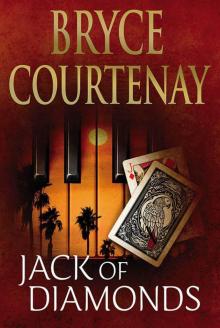 Jack of Diamonds
Jack of Diamonds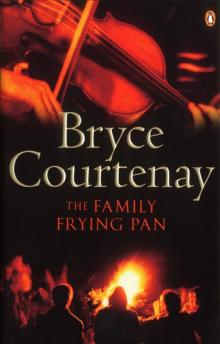 The Family Frying Pan
The Family Frying Pan April Fool's Day
April Fool's Day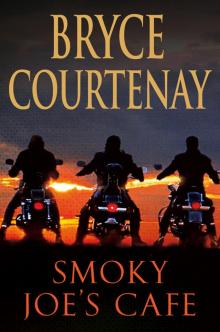 Smoky Joe's Cafe
Smoky Joe's Cafe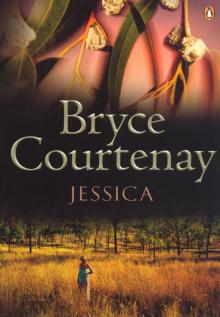 Jessica
Jessica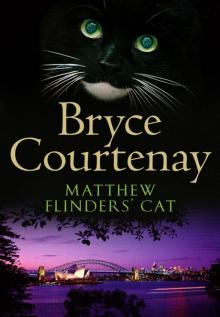 Matthew Flinders' Cat
Matthew Flinders' Cat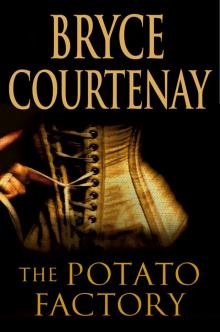 Potato Factory
Potato Factory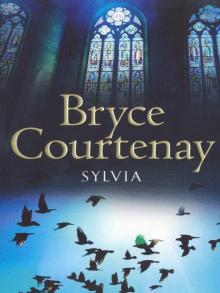 Sylvia
Sylvia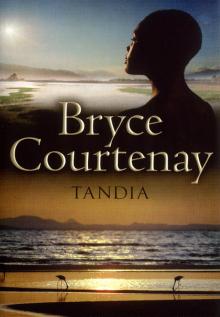 Tandia
Tandia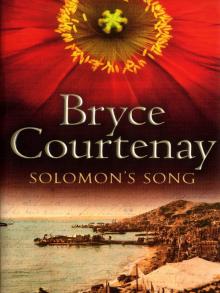 Solomon's Song
Solomon's Song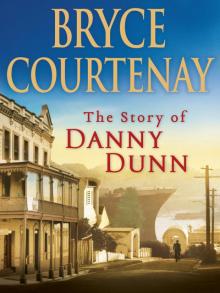 The Story of Danny Dunn
The Story of Danny Dunn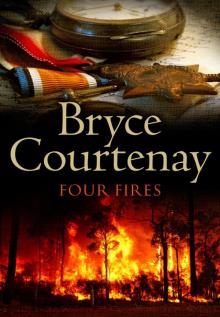 Four Fires
Four Fires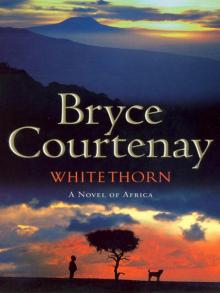 Whitethorn
Whitethorn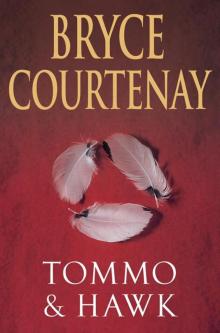 Tommo and Hawk
Tommo and Hawk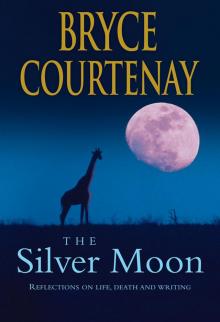 The Silver Moon
The Silver Moon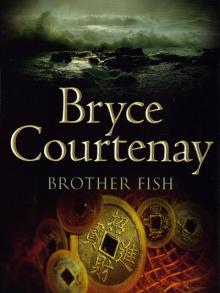 Brother Fish
Brother Fish FORTUNE COOKIE
FORTUNE COOKIE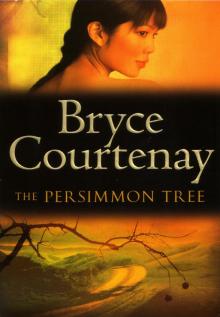 The Persimmon Tree
The Persimmon Tree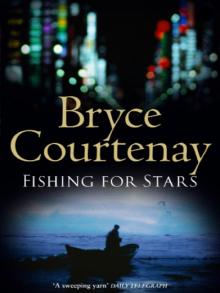 Fishing for Stars
Fishing for Stars